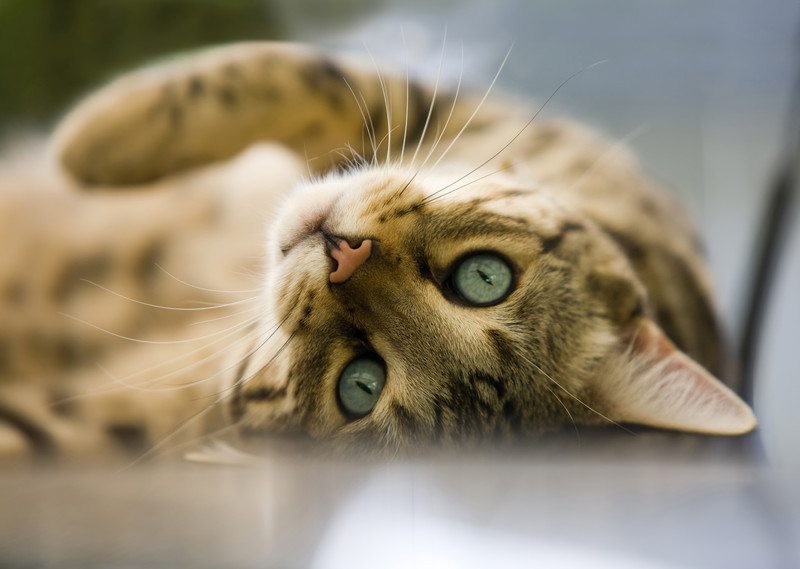 Dr. Tony Buffington, of the College of Veterinary Medicine, professor at the Ohio State University has dedicated his life to the general mystery of cats. He has spent the last few years studying interstitial cystitis, a painful and chronic inflammation of feline bladder tissue. Through his research, he has discovered that a stressful home environment can be the major catalyst of this inflammation, and he has some interesting theories and advice for cat parents and how to communicate with your cat.
Dr. Tony Buffington, of the College of Veterinary Medicine, professor at the Ohio State University has dedicated his life to the general mystery of cats. He has spent the last few years studying interstitial cystitis, a painful and chronic inflammation of feline bladder tissue. Through his research, he has discovered that a stressful home environment can be the major catalyst of this inflammation, and he has some interesting theories and advice for cat parents and how to communicate with your cat.
When cats behave in a way that we perceive as negative, we often try to associate that behavior with a punishment or consequence. When your cat scratches the couch you might spray them with a water bottle. The problem with this is that cats evolved as solitary hunters. They had no need to learn about social cues or behaviors. All they perceive is a giant human acting aggressively for reasons they can’t comprehend. This seemingly chaotic and violent behavior causes incredible stress for our animals. Instead of discouraging the act you become the source of fear and contention in your cat’s life.
Use Positive Reinforcement
Dr. Buffington instead explains that we need to provide only positive reinforcement. This is what cats understand. For example, if you don’t want your cat to climb onto the counters, line the edges with tin foil or double sided sticky tape. Your cat will naturally avoid these things and when they do, reward them with a treat. This way their experience with you will always be a positive one. This strengthens your relationship and promotes your cat’s health by reducing their stress.
Another source of stress may be the environment itself. It is important for your cat to feel safe and one way to do that is by putting your cat’s food and litter box in open spaces with clear escape routes. That way if she is feeling anxious, she doesn’t also feel trapped. If the litter box or food dishes are in a closet or tight corner, this can cause stress in cats.
Also Read <Cat Care Secrets From Jackson Galaxy>
Another factor can be the sound in the environment. You should never place their litter box next to an air conditioning unit or their food next to a refrigerator. You might not notice the sound, but Dr. Buffington explains that machinery can sound like growling monsters to a cat.
Easing Separation Anxiety in Cats
Some cats suffer from separation anxiety. A way to ease their stress is by creating rituals for coming and going. Create a ritual by saying goodbye to your cat with some affectionate love and attention. Spend quality time with your cat every day may reduce that stress and anxiety.
Listen to Your Cat and Know Her Cues
The last piece of advice he had to share was ways to interact with your cat physically. Sometimes it feels like cats can be unpredictable, wanting to be pet one second, and lashing out the next. One key piece of body language we need to aware of is what a cat means when they expose their belly. Contrary to what it looks like, when a cat exposes her belly, they are not asking you to pet them. A cat’s belly is her most vulnerable part. Exposing its belly to you is a sign of trust and comfort, not an invitation to pet.
Learning to listen to your cat will not only improve your relationship, but also reduce the risk of health complications by taking away her main stressors.
Photo Credit: Can Stock Photo Inc. HelleM









